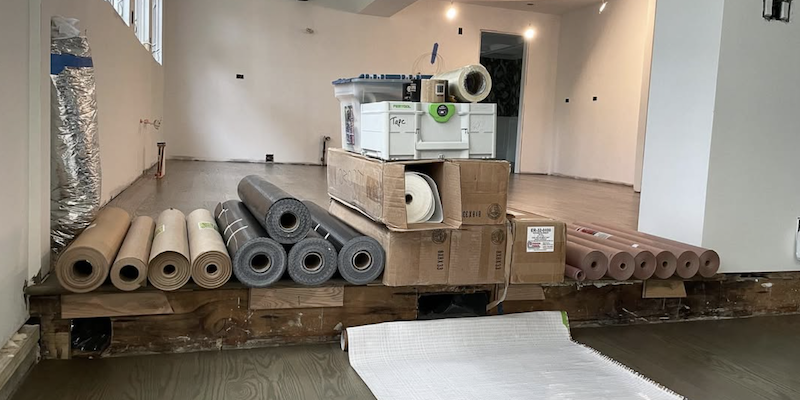For most of us, pricing our time starts out as simple math. What do I need to make this year? What’s the going rate around here? How many hours can I work without burning out (most of us never consider this)? I used to run those numbers every few months, tweaking them slightly, hoping to land on something that felt fair, to both the client and to me. But the longer I’ve been in business, the more I’ve realized that pricing time isn’t just a math problem. It’s a mindset problem.
In the beginning, I worked for what I now call a “hustle rate.” It wasn’t based on value, or experience, or even real costs, it was rooted in fear. Fear of not landing the job, fear of looking too expensive, fear of someone saying no. So I said yes to everything. Walkthroughs, estimates, weekend calls, late-night emails. All free. All part of the deal, or so I thought. The logic back then was simple: be busy, do good work, and the rest will work itself out. But it didn’t. I was buried in low-margin work, always chasing the next job, and constantly apologizing to my family for missing dinner again. Burning the candle at both ends.
That version of me didn’t just undervalue my time, I didn’t even know what my time was worth. I saw billable hours and job site work as the only “real” labor. Everything else, planning, design input, fielding client texts at 9 PM, simply felt like overhead. I didn’t realize that the more I gave away for free, the more I trained my clients to expect it. Worse, I was reinforcing to myself that my ideas, time, and judgment weren’t worth anything unless they came with a hammer in hand.
Eventually, I got tired of being underwater and started adjusting my pricing, mostly by looking sideways at other builders in my area. If they were charging $75/hour for site work, I’d try $80. If someone said they had a project management fee, I’d tack on something similar without really understanding how it applied to me. It was progress, but it was still reactive. I was chasing the market, not leading my own business.
The big shift came when I finally stepped back and looked at how I was spending my time week to week. I started noticing the patterns: the repeated calls about selections, the back-and-forth with trades, the hours spent drawing up ideas before a contract was even signed. All of that effort was valuable, arguably more valuable than swinging the hammer, because it shaped the direction and outcome of every project. Yet I wasn’t charging for any of it.
That realization forced me to start thinking like a business owner, not just a builder or carpenter. I began to ask myself, “What’s the cost of me doing this, versus someone else doing it? And what’s the value of this task to the project, to the client, or to the business long-term?” That question alone has probably made me more money and saved more time than any tool in my trailer.
Now, I price my time differently. I don’t just look at what I “should” be making per hour. I look at what only I can do, the opportunity cost, and I make sure that’s where the majority of my time goes. That includes things like leading client conversations, defining scope and strategy during preconstruction, and building systems that make our work smoother and more repeatable. The rest, the admin, the logistics, the stuff that used to keep me up at night, I either delegate, systemize, or charge appropriately. If I have opportunities to make more money elsewhere, it would be foolish to chase a project based on emotions that provides less financial gain. If you want my time, my expertise, my focus; you have to pay what I feel my time is worth.
And here’s the thing: clients respond to this clarity. When you present your time as something intentional and structured, not scattered and reactive, people respect it. When they understand the cost associated with your time through transparency, they will waste less of it. They start to see your expertise as part of the product, not just the labor. They’re willing to pay for it when you explain it with confidence and when you are forthright with the costs.
So, if you’re still trying to figure out how to price your time, I’d encourage you to stop thinking about it like a calculator exercise. Start thinking about it like an identity exercise. What kind of builder are you? What kind of business do you want to run? What kind of life do you want to protect outside of work? What other opportunities do you have on your plate? Your time should reflect all of that, not just what the guy down the street is charging.
I don’t have it all figured out. I still catch myself slipping into old habits, overcommitting, undervaluing. But I’ve learned that your time only becomes valuable to others once you decide it’s valuable to you. And when you make that shift, everything about your business starts to feel different, more stable, more strategic, and more sustainable.
